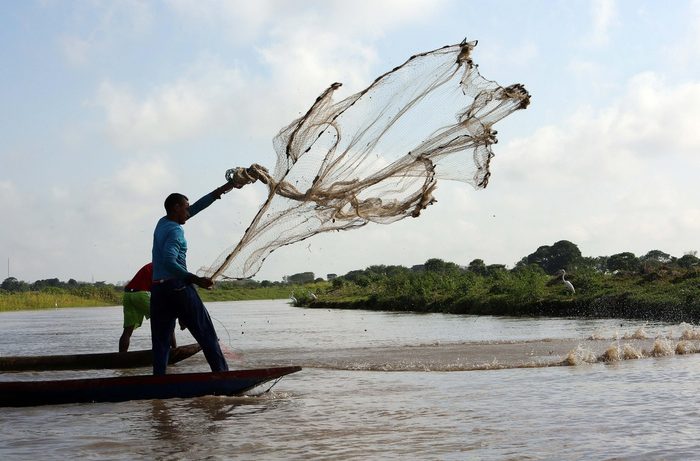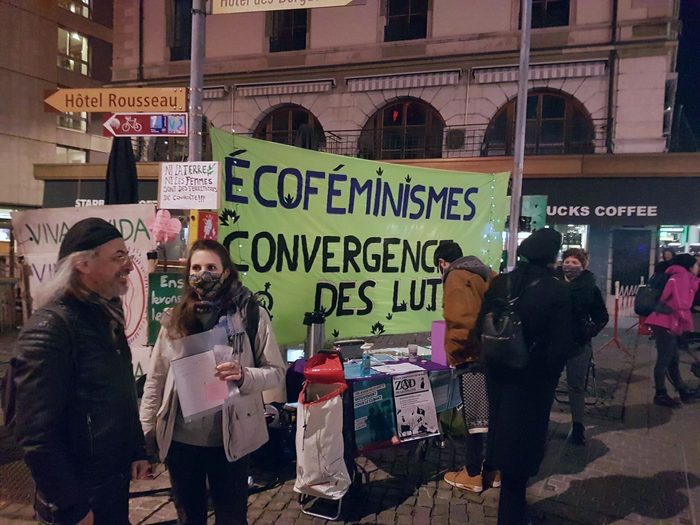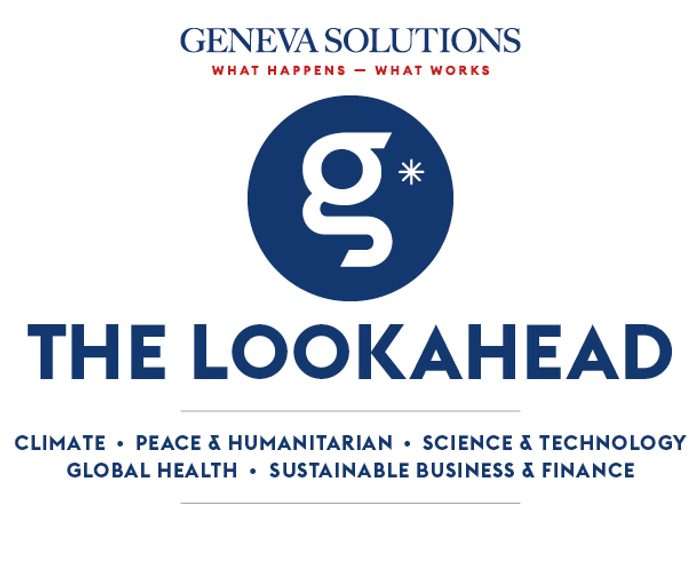Good morning, Michelle here and today we see how Colombia is struggling with a water crisis, despite being one of the world's richest countries in freshwater.
As the UN Food Systems Summit continues to stir controversy, its deputy envoy rebuts claims that big business is running the show. Plus, UNEP reveals that Covid recovery efforts by nations are not green enough.
Before leaving, we invite you this evening to hear the stories of four women rights defenders from Central America at an event that I’ll be moderating. |

|

Fishermen cast their nets in a swamp in San Marcos, Colombia, on April 2017. (Keystone)
|
|
🚰 🇨🇴 Dirty water.
Industrial oil extraction, mining and farming are a major source of pollution in Colombia, leaving many people in certain areas without access to clean water. As the country is increasingly struck by more intense droughts and floods due to global warming, tensions around this vital source are growing.
Geneva Solutions (EN)
|
|
🌽 🇺🇳 Food fight.
Following an incendiary rapport from the UN special rapporteur on food on the UN food summit, its UN deputy envoy refutes claims that private interests are taking the lead and other actors are being sidelined.
Geneva Solutions (EN)
|
|
💰 😷 A not-so-green recovery.
A report by the UN Environment Programme has revealed that only one fifth of announced recovery spending by the largest economies will have a positive impact on the environment, and this is thanks to only a handful of high-income countries.
Geneva Solutions (EN)
|
|
Here's what else is happening
|

(Geneva Solutions/Michelle Langrand)
|
|
♀️🍃 Ecofeminism in the streets of Geneva.
On Monday, the world celebrated women. While activists could not march like other years due to Covid restrictions, Geneva’s feminists made sure that the day did not go by too quietly. In Place de Chevelu, activists were there to remind passers-by that, like women, the planet is also being dominated by the patriarchy. For ecofeminists, understanding gender inequality can help understand human’s oppressive relationship with nature, and empowering and educating women are some of the best ways to tackle climate change.
|
|
|
GS news is a new media project covering the world of international cooperation and development. Don’t hesitate to forward our newsletter!
Have a good day!
|

|
|
Avenue du Bouchet 2
1209 Genève
Suisse
|
|
|
|









